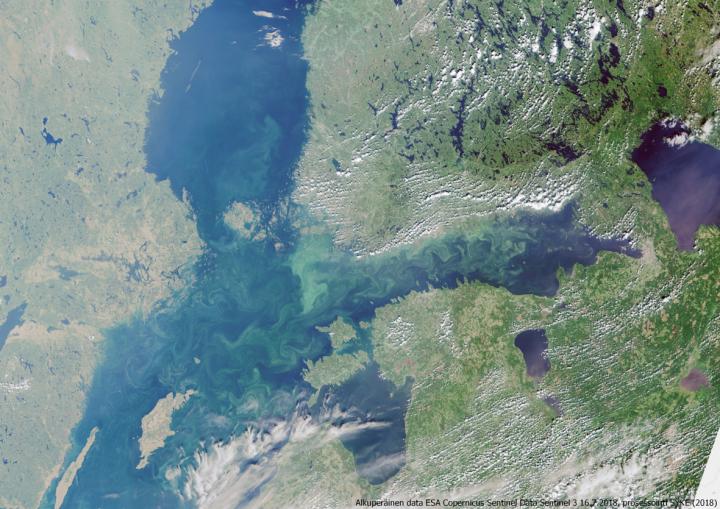The countries around the Baltic Sea do not respect their binding international agreement to reduce agricultural pollution of the marine environment.
The countries around the Baltic Sea do not respect their binding international agreement to reduce agricultural pollution of the marine environment. Despite farming activities being the single most important source of nutrient pollution to the Baltic Sea.
An international research team presents evidence on these circumstances in a recent scientific article in the journal Ambio, published by the Royal Swedish Academy of Sciences.
The countries made a commitment 20 years ago to implement 10 specific reduction measures in their national legislation on agricultural pollution – e.g. featuring minimum storage capacity for manure and regulations on animal densities.
Now the researchers’ study of legislations and regulations in place at national level, to address nutrients, finds that none of the nine signatories to the Convention is respecting fully the legally binding agreement. Hence, nutrients are leaching to the marine environment in excess of the Baltic Sea’s tolerance limits, causing excess algae growth and eutrophication even in the open sea (see photo).
The larger countries, Poland, Germany and Russia, have the weakest record of implementing the reduction measures in their national legislation. Performance is especially poor in Russia and Poland, but also Germany, despite a ruling by the European Court, lags behind. The best performing countries are Sweden and Estonia. Nevertheless, in all nine countries the study identifies shortcomings in compliance with important reduction measures of the Convention.
“Although the Convention specifies ceilings on the amounts of nutrients that farmers may apply to their crops, ceilings are not implemented fully by any country. Either nutrient ceilings are too generous, apply to part of the territory only or are entirely absent. Notably the ceiling of 25 kg phosphorus per hectare is absent in most places, even if the reduction needs are now most pressing with regard to phosphorus” says Mikael Skou Andersen, professor of environmental science at Aarhus University. He is part of the research authors’ team.
The reduction measures were adopted under the Convention in anticipation of financial transfers from the EU to farmers in Poland and the Baltic countries. Yet, the researchers find that the eastern countries only to a very limited extent have put to use the economic support available as part of the Common Agricultural Policy, to provide support for reducing nutrient pollution of the marine environment.
The Baltic Sea Action Plan is up for revision every seven years. During the current German Presidency of HELCOM an update and revision is expected to be concluded at the Ministerial meeting October 20.th in Lübeck.
###
Media Contact
Prof. Mikael Skou Andersen, Aarhus University
[email protected]
Related Journal Article
http://dx.





